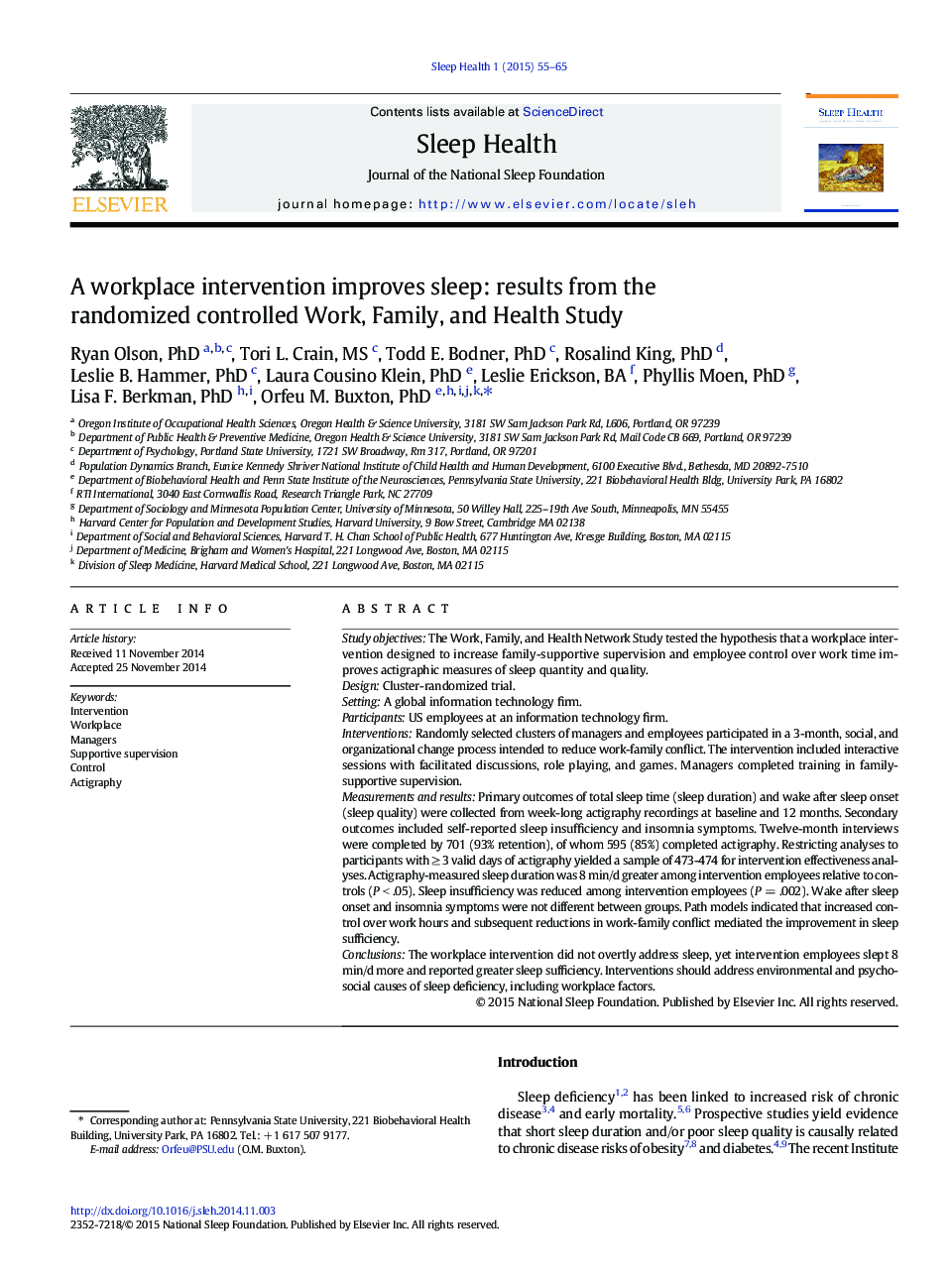| کد مقاله | کد نشریه | سال انتشار | مقاله انگلیسی | نسخه تمام متن |
|---|---|---|---|---|
| 916326 | 918836 | 2015 | 11 صفحه PDF | دانلود رایگان |
Study objectivesThe Work, Family, and Health Network Study tested the hypothesis that a workplace intervention designed to increase family-supportive supervision and employee control over work time improves actigraphic measures of sleep quantity and quality.DesignCluster-randomized trial.SettingA global information technology firm.ParticipantsUS employees at an information technology firm.InterventionsRandomly selected clusters of managers and employees participated in a 3-month, social, and organizational change process intended to reduce work-family conflict. The intervention included interactive sessions with facilitated discussions, role playing, and games. Managers completed training in family-supportive supervision.Measurements and resultsPrimary outcomes of total sleep time (sleep duration) and wake after sleep onset (sleep quality) were collected from week-long actigraphy recordings at baseline and 12 months. Secondary outcomes included self-reported sleep insufficiency and insomnia symptoms. Twelve-month interviews were completed by 701 (93% retention), of whom 595 (85%) completed actigraphy. Restricting analyses to participants with ≥ 3 valid days of actigraphy yielded a sample of 473-474 for intervention effectiveness analyses. Actigraphy-measured sleep duration was 8 min/d greater among intervention employees relative to controls (P < .05). Sleep insufficiency was reduced among intervention employees (P = .002). Wake after sleep onset and insomnia symptoms were not different between groups. Path models indicated that increased control over work hours and subsequent reductions in work-family conflict mediated the improvement in sleep sufficiency.ConclusionsThe workplace intervention did not overtly address sleep, yet intervention employees slept 8 min/d more and reported greater sleep sufficiency. Interventions should address environmental and psychosocial causes of sleep deficiency, including workplace factors.
Journal: Sleep Health - Volume 1, Issue 1, March 2015, Pages 55–65
